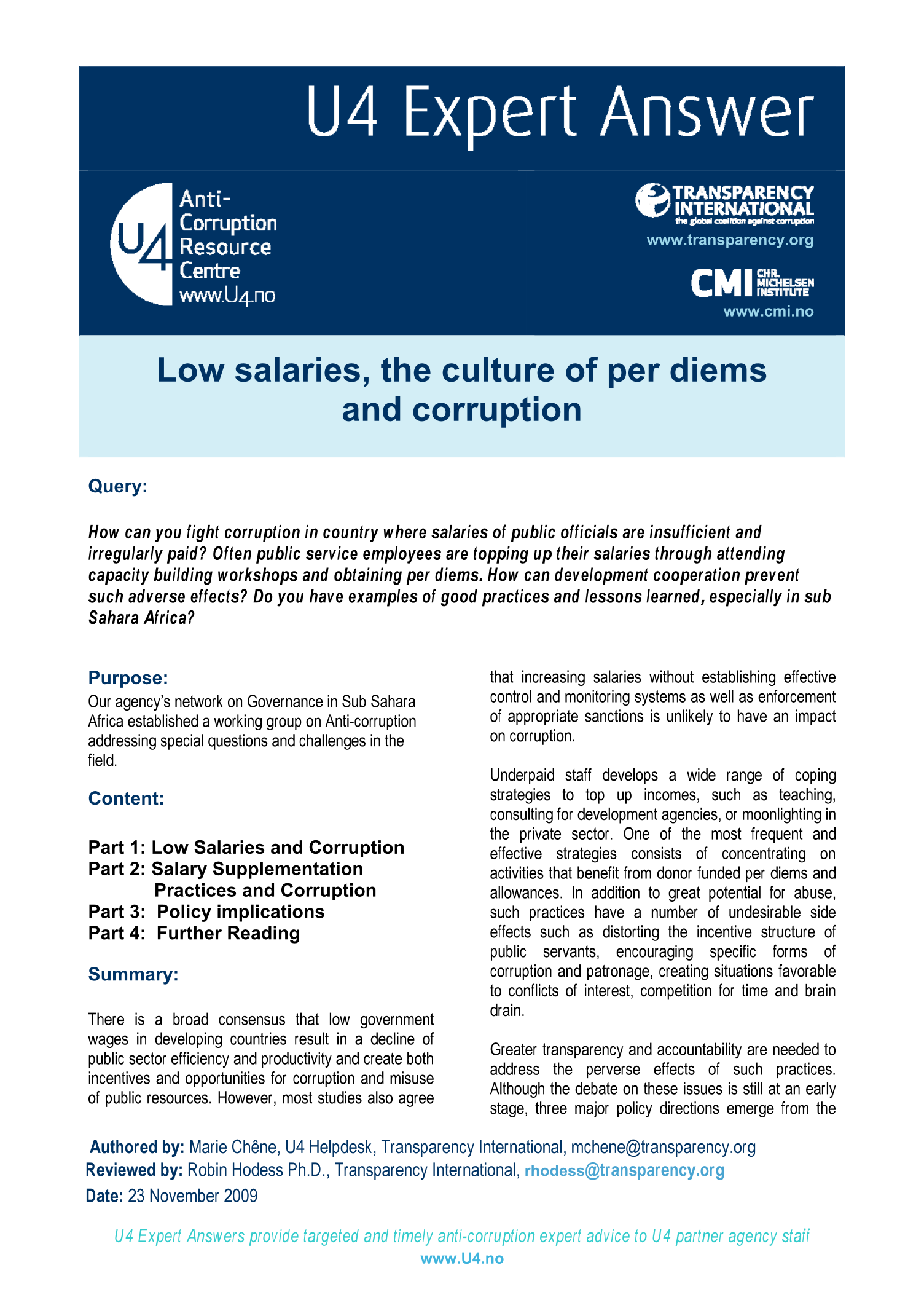U4 Helpdesk Answer
Low salaries, the culture of per diems and corruption
Low government wages in developing countries result in a decline of public sector efficiency and productivity and create incentives and opportunities for corruption and misuse of public resources. However, most studies also agree that increasing salaries without effective monitoring systems as well as enforcement of sanctions is unlikely to have an impact on corruption. Underpaid staff develops a wide range of coping strategies to top up incomes. One of the most frequent consists of concentrating on activities that benefit from donor funded per diems and allowances. In addition to great potential for abuse, such practices have a number of undesirable side effects such as distorting the incentive structure of public servants, encouraging specific forms of corruption and brain drain.

Cite this publication
Chêne, M. (2009) Low salaries, the culture of per diems and corruption . Bergen: U4 Anti-Corruption Resource Centre, Chr. Michelsen Institute (U4 Helpdesk Answer Helpdesk )
Disclaimer
All views in this text are the author(s)’, and may differ from the U4 partner agencies’ policies.
This work is licenced under a Creative Commons Attribution-NonCommercial-NoDerivatives 4.0 International licence (CC BY-NC-ND 4.0)


